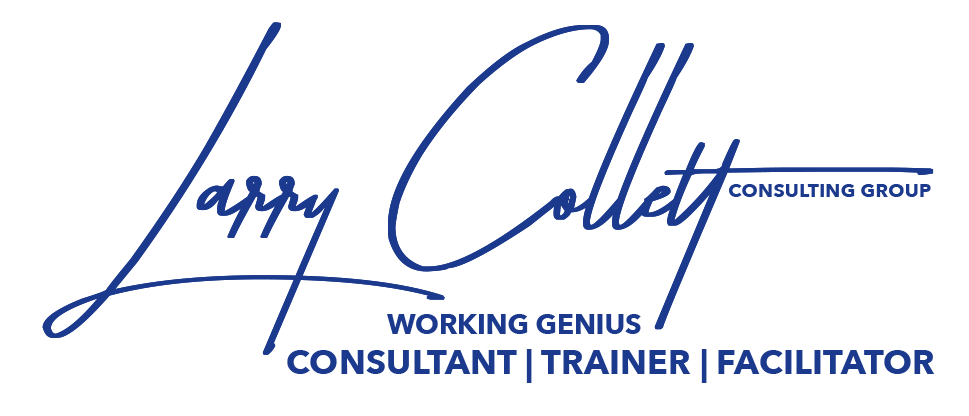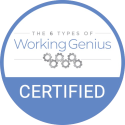Understanding Working Genius and its Impact
Exploring the Essence of Working Genius
Working Genius is a concept that delves into the unique abilities that individuals bring to a team. It encompasses six distinct types of geniuses that are essential for achieving success in a collaborative environment. By understanding these types, teams can leverage the strengths of each member to enhance overall performance.
The Impact of Working Genius on Team Dynamics
When members of a team align their strengths with the types of Working Genius, it leads to improved communication, synergy, and productivity. Each type of genius contributes in a specific way, creating a balanced dynamic that drives the team towards its goals effectively. Recognizing and harnessing these differences can transform how a team operates and achieves success.
Enhancing Performance through Working Genius
By recognizing the presence of different working geniuses within a team, leaders can assign tasks strategically, ensuring that each member is working in their element. This approach not only enhances individual satisfaction but also boosts team performance by capitalizing on the diverse talents and abilities present. Embracing Working Genius can lead to a more cohesive, efficient, and successful team overall.
Identifying the Six Types of Working Genius
Recognizing the Unique Attributes of the Working Genius
The six types of working genius encompass a range of skill sets that individuals might possess. The first type is “Wonder,” representing the joy in learning and the passion for seeking knowledge. Those who excel in this type are naturally curious and are driven by a desire to understand the world around them.
Understanding the Elements of Working Genius
The second type is “Ingenuity,” which involves thinking outside the box, problem-solving creatively, and generating innovative ideas. People with this working genius are adept at finding novel solutions and approaching challenges from unconventional angles.
Exploring the Applications of Working Genius
The third type, “Discernment,” refers to the ability to make sound judgments, assess situations accurately, and evaluate choices effectively. Individuals with discernment as their working genius can navigate complexities and make informed decisions with clarity and wisdom.
Exploring the Characteristics of Strategic Thinking
Key Attributes of Strategic Thinking
Strategic thinking involves the ability to envision the big picture and anticipate future trends and outcomes. Individuals with strong strategic thinking skills excel in analyzing complex situations, identifying patterns, and making informed decisions that align with long-term goals. They are adept at considering multiple perspectives and possibilities, allowing them to navigate uncertainties with confidence.
Strategic Planning in Action
In practice, strategic thinkers exhibit a natural inclination towards setting clear objectives and developing detailed plans to achieve them. Their proactive mindset enables them to prioritize tasks effectively, allocate resources efficiently, and adapt to changing circumstances with agility. By envisioning various scenarios and creating contingency strategies, strategic thinkers are better equipped to steer their teams towards success.
Cultivating Strategic Thinking
While some individuals may possess an innate aptitude for strategic thinking, this skill can be developed and honed through practice and self-awareness. Embracing a growth mindset, seeking feedback from peers, and engaging in continuous learning opportunities can enhance one’s strategic thinking capabilities over time. Incorporating reflection and analysis into daily routines can also foster a deeper understanding of complex issues and facilitate more strategic decision-making processes.
Implementing the Power of Tenacity in Team Dynamics
Embracing Persistence in Team Collaboration
When it comes to implementing the power of tenacity in team dynamics, persistence plays a crucial role. Team members need to embrace challenges and setbacks with determination and perseverance. Encouraging a culture of persistence within the team can drive them to overcome obstacles and achieve their goals.
Fostering Resilience in Team Relationships
Resilience is another key aspect of harnessing tenacity in team dynamics. Building strong relationships and trust among team members creates a supportive environment where individuals can bounce back from failures and setbacks. By fostering resilience in team relationships, you empower team members to stay committed and focused even in challenging situations.
Celebrating Small Wins for Sustained Motivation
Celebrating small wins is an effective way to sustain motivation within the team. Recognizing and acknowledging individual and collective achievements, no matter how small, boosts morale and encourages team members to keep pushing forward. By celebrating these victories, you reinforce the importance of tenacity in achieving success and foster a culture of continuous improvement.
Nurturing Collaboration and Discernment for Team Success
Creating a Collaborative Environment
Fostering collaboration within a team requires intentional effort from all team members. Encourage open communication, active listening, and respect for diverse perspectives. By creating a safe space where team members feel valued and heard, you can cultivate a culture of collaboration that leads to success.
Developing Discernment Skills
Discernment is crucial for making informed decisions and navigating challenges effectively. Encourage team members to hone their critical thinking skills, consider various options carefully, and weigh potential risks and benefits. By developing discernment as a team, you can enhance decision-making processes and achieve better outcomes.
Embracing Feedback and Continuous Improvement
Feedback is a powerful tool for growth and improvement. Encourage a culture where feedback is given constructively, received openly, and used to drive continuous learning. Embrace a mindset of continuous improvement within the team, encouraging members to reflect on their actions, learn from mistakes, and adapt to new challenges.


